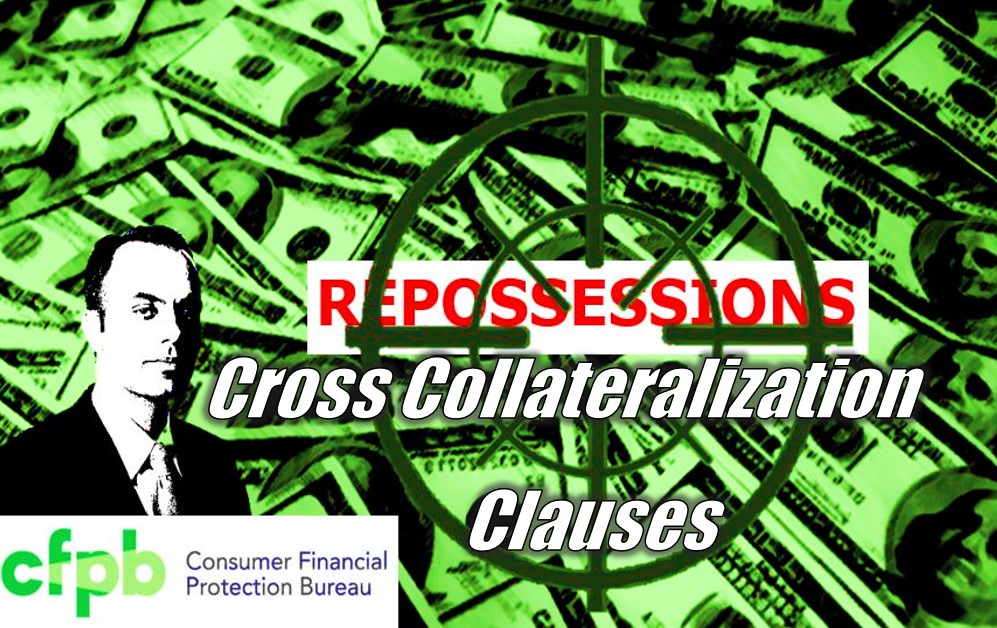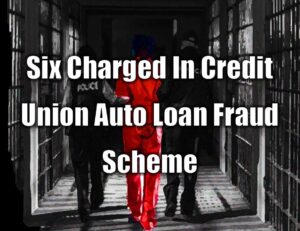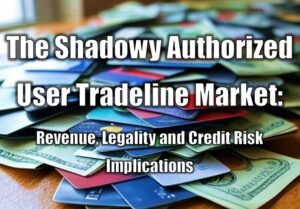CFPB Sets Sights on Post Repossession Cross Collateralization Clauses
For decades, cross collateral clauses have been a standard in collections and risk management tools employed by credit unions across the nation. It’s common sense, you owe money for two or more loans and want to reinstate an auto loan from repossession, you must pay all of the accounts current in order to do so. Well, those day may be coming to an end if the Consumer Financial Protection Bureau (CFPB) gets its way.
Cross collateral clauses are logical risk management tools. These agreements are incorporated into membership agreements for the purpose of consolidating loan and share risk posed by members across all of their delinquent loan and share accounts in the event of default.
These clauses protect credit unions from suffering additional losses when all or part of a member’s loans and shares are in various states of delinquency or allows them to offset funds from a share or savings account to cover delinquency on loan products.
Despite these clauses being an industry standard openly incorporated into member agreements and agreed upon as a condition of membership, the Consumer Financial Protection Bureaus (CFPB) now says they are Unfair, Deceptive and Abusive Practices (UDAAP).
In the Consumer Financial Protection Bureaus (CFPB) Summer 2023 Supervisory Highlights, they published the following findings.
Read the Entire CFPB Summer 2023 Supervisory Highlights Here!
2.2.3 Requiring consumers to pay other debts to redeem vehicles
Some vehicle financing contracts contain clauses allowing servicers to use the vehicle to secure other unrelated unsecured debts consumers owe to the company, such as credit card debt; this is referred to as cross-collateralization. Examiners found that after servicers repossessed vehicles, they accelerated the amount due on the vehicle finance contract and also accelerated any other amounts the consumer owed to the entity. When consumers called to recover the vehicles, the servicers required consumers to pay the full amount on all accelerated debts, which included both debt for the vehicle and other debts.
Examiners found that servicers engaged in unfair and abusive acts or practices by engaging in the blanket practice of cross-collateralizing loans and requiring consumers to pay other debts to redeem their repossessed vehicles.
Accelerating and demanding repayment on other debts before returning repossessed vehicles was unfair. It caused substantial injury to consumers because consumers were required to pay accelerated and cross-collateralized amounts across multiple loans or lose their vehicles.
Consumers could not reasonably avoid the harm caused by this practice. While servicers occasionally allowed consumers to pay lesser amounts, they did so only if consumers objected or argued about the debt and consumers were not meaningfully made aware that arguing about the cross-collateralization could result in a lesser payment amount. And even if the consumer objected, representatives still used the cross-collateral provisions as a coercive collection tactic.
A blanket practice of cross-collateralizing and demanding repayment does not benefit consumers and the harm outweighs any countervailing benefits to consumers or competition. This practice was abusive because it also took unreasonable advantage of a lack of understanding of consumers of the material risks, costs, or conditions of their loan agreements.
When consumers sought to reinstate their loans after repossession, servicers utilized contractual remedies to accelerate all debts owed to them which resulted in a significant monetary advantage to servicers while imposing a corresponding degree of economic harm on the consumer. These practices also inflicted significant emotional and psychological distress. The advantage gained by the servicers was unreasonable in the ordinary case of vehicle repossession. And consumers lacked an understanding of the material risks, costs, or conditions of the specific contractual remedies allowing for cross-collateralization at issue in the relevant loans.
In response to these findings, servicers remediated consumers and revised policies and procedures.
What this Means?
The ramifications of this on the usual credit union who are not of asset size to fall under the supervisory jurisdiction of the CFPB is likely minimal or non-existent at this point. This really depends upon its application by NCUA state examiners or a court of law.
While the CFPB has the authority to impose fines and procedural changes to those lenders that do fall under their supervision, they tend not to trickle down into all lenders below their view. This, however, could change.
As a general practice, every credit union should review their cross-collateral clauses and how they employ them with an attorney on a regular basis. In the aftermath of this finding, it might be a good idea to do so now.
CFPB Sets Sights on Post Repossession Cross Collateralization Clauses – CFPB Sets Sights on Post Repossession Cross Collateralization Clauses
CFPB Sets Sights on Post Repossession Cross Collateralization Clauses – Consumer Financial Protection Bureau – CFPB – Repossession – Credit Union Collections












Facebook Comments